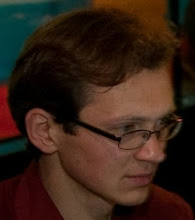Sinds enkele jaren houd ik mij bezig met het probleem van theoriekeuze in de linguïstiek en de verhouding tussen grammatische modellen en taalfilosofische problemen. Ik heb echter niet de geringste ambitie om linguïst te worden. Het onderstaande citaat kan verduidelijken waarom:
"In the best studied case of SLI [Specific Language Impairment] of all, however, the evidence for a differential loss of grammar seems incontrovertible. This is the working-class British family described in Gopnik (1990) and elsewhere, and referred to in the literature as 'the KE family' (or simply as 'the K family'). With the exception of some problems with articulation, the only deficit shared by all affected members of this family is a partial and consistent loss of grammatical function. All attempts have proved fruitless to circumvent the conclusion that the locus of their deficit is the autonomous grammatical system. [...] It is absolutely true, as pointed out in Vargha-Khadem et al. (1995) and elsewhere, that virtually all affected members of the KE family have other problems, ranging from dyslexia to spatial rotation to depression to schizophrenia to apraxia. But the point is that none of these problems reliably occur with the language disorder and therefore cannot be the root cause of it."
[Frederick Newmeyer, Language Form and Language Function, MIT Press, 1998, pp. 91, 93]
Wellicht bedoelt Newmeyer het niet zo eilandantropologisch als het overkomt. Volgens Stephen Pinker (The Language Instinct) is de KE family, voor zover niet gehandicapt, alleszins normaal. Maar ik moest toch denken aan de beginscène van The Royal Tenenbaums, waarin de boeken worden gepresenteerd die de Tenenbaums geschreven hebben, waaronder dat van de man van de toneelschrijfster. (Kan iemand op de dvd checken wat de precieze titel ook al weer was?)
"In the best studied case of SLI [Specific Language Impairment] of all, however, the evidence for a differential loss of grammar seems incontrovertible. This is the working-class British family described in Gopnik (1990) and elsewhere, and referred to in the literature as 'the KE family' (or simply as 'the K family'). With the exception of some problems with articulation, the only deficit shared by all affected members of this family is a partial and consistent loss of grammatical function. All attempts have proved fruitless to circumvent the conclusion that the locus of their deficit is the autonomous grammatical system. [...] It is absolutely true, as pointed out in Vargha-Khadem et al. (1995) and elsewhere, that virtually all affected members of the KE family have other problems, ranging from dyslexia to spatial rotation to depression to schizophrenia to apraxia. But the point is that none of these problems reliably occur with the language disorder and therefore cannot be the root cause of it."
[Frederick Newmeyer, Language Form and Language Function, MIT Press, 1998, pp. 91, 93]
Wellicht bedoelt Newmeyer het niet zo eilandantropologisch als het overkomt. Volgens Stephen Pinker (The Language Instinct) is de KE family, voor zover niet gehandicapt, alleszins normaal. Maar ik moest toch denken aan de beginscène van The Royal Tenenbaums, waarin de boeken worden gepresenteerd die de Tenenbaums geschreven hebben, waaronder dat van de man van de toneelschrijfster. (Kan iemand op de dvd checken wat de precieze titel ook al weer was?)

1 opmerking:
Raleigh St. Clair's 'The Peculiar Neurodegenerative Inhabitants of the Kazawa Atoll'!
Een reactie posten